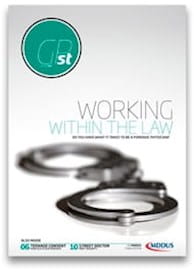THE thing that most GP trainees forget when facing the Clinical Skills Assessment exam of the MRCGP is that they are already doing the majority of the preparation required in their normal surgeries! You will have experience in managing a variety of patients with a multitude of problems. For example, you will have had to deal with challenging patients who are demanding, aggressive, worried and non-compliant. Patients will have seen you about problems ranging from enuresis to terminal metastatic cancer and everything in between. With this wealth of experience at your fingertips, the key now is to make sure you realise this and build upon it.
A few months before…
It is most definitely worth asking your GP trainer (or other GPs in your training practice) to either sit in on some of your consultations as an observer, or for you to video your consultations and discuss them with your GP trainer. This will have several benefits – firstly, you will get used to having a silent observer (either a person or a video camera) present during your consultations, representing the examiner in the CSA stations. Secondly, your GP trainer will give you constructive feedback on all your consultation skills, which will include both communication and clinical management. The more cases you can be observed on, the better prepared and more comfortable you will feel on the day itself.
Some doctors are naturally good at patient communication; some are not so good. If you do not already make it a standard part of your consultations, then always ensure you ask about a patient’s ideas, concerns and expectations (remember: ‘ICE’). Not only does this demonstrate your consulting skills, but it also gives patients a good opportunity to reveal valuable information to you – this applies both in real life and in the CSA exam.
If you feel you have any gaps in your knowledge (e.g. musculoskeletal medicine), then discuss this with your GP trainer in plenty of time so that you can find ways to fill these gaps (e.g. agreeing to let you go to a musculoskeletal clinic).
On the day
In the CSA exam you will see 13 different patients with 10 minute appointments in a mock surgery lasting three hours. Before your surgery starts, you are given a folder containing the names of the patients you will see plus some background information. Make sure you read this thoroughly before the patients come into your room.
I would personally recommend staying in a hotel nearby the night before the exam. This will avoid travelling by car or train on the day and suffering unnecessary travel stress or, at worst, losing your place in the exam if you arrive late. There is no food provided at the CSA exam centre, so make sure you have a full breakfast as you do not want to go hungry and neither you, the patient nor the examiner wish to hear your tummy rumbling during the exam! Make sure you arrive with your complete doctor’s bag and necessary equipment, a list of which can be found on the RCGP website (http://www.rcgp-curriculum.org.uk/nmrcgp/csa.aspx, click on ‘CSA Information for Candidates’).
You will be provided with some mock FP10 prescriptions and ‘fit notes’ – but be aware that anything you write on these will be assessed. There are ways you can possibly avoid having to write on them, by explaining to the patients what would be written on them (e.g. “You need to take amoxicillin 500mg three times daily for one week”) and ask them to pick it up from ‘reception’ later.
I know this is much easier said than done, but my single best tip on the day is to try and pretend as much as possible that this exam is just one of your usual clinics. This will make you feel more relaxed, help you think more clearly and make it easier for you to draw upon your previous GP experience should you be faced with something that challenges you in the exam. Best of luck!
Dr Milan Mehta is a newly qualified GP and coauthor of Succeeding in the MRCGP CSA: Common scenarios and revision notes for the Clinical Skills Assessment which is part of the MediPass Series published by BPP Learning Media
This page was correct at the time of publication. Any guidance is intended as general guidance for members only. If you are a member and need specific advice relating to your own circumstances, please contact one of our advisers.
Read more from this issue of Insight Primary

Save this article
Save this article to a list of favourite articles which members can access in their account.
Save to library


